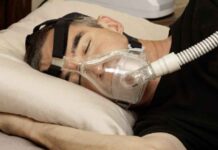Sleep is important for maintaining physical and mental health.
Yet, different parts of the world have some sort of sleeping problem, which in turn makes people fatigued, reduces performance, and sometimes develops into a chronic disease. Many are concerned with the question, “How can we improve sleep quality?” This issue is especially important for students who go through a lot of pressure and stress while studying, and the constant thoughts of unresolved tasks can harm sleep and further reduce productivity. To reduce stress levels during studies, rational students work with a research paper writer who helps to eliminate one of the biggest stresses, namely writing essays and other papers.
We continue to consider which techniques will work and which don’t have any scientific background.
The Role of Sleep for the Body
Healthy sleep is not just rest but a very important recovery process for the organism. On average, an adult needs 7-9 hours of sleep to recover fully.
There are several stages of sleep, including:
Slow-wave sleep is the deep phase of sleep when muscular strength, muscles, and body cells are restored. It is that stage during which the body actively renovates tissues, strengthens the immune system, and restores energy reserves. REM sleep is when the brain processes and sorts information acquired during the day. Throughout the REM phase, the brain consolidates its memory and assimilates new knowledge.
Not getting enough sleep has grave consequences. Lack of deep sleep will weaken the immune system, develop problems with one’s memory, and increase the risk of cardiovascular diseases, diabetes, and psychiatric disorders such as depression and anxiety.
Sleep Myths by Common People
There are many myths about sleep, which can lead to further misunderstanding and poor sleep quality. So, let’s observe the most popular ones.
Myth: Everyone needs exactly 8 hours of sleep.
Sleep duration is highly individualized, ranging from the person feeling rested after 6-7 hours to needing 8-9 hours to fully recover.
Myth: Naps are hazardous.
A less than 30-minute afternoon nap can invigorate and improve alertness, while napping longer than 60 minutes during the day will conflict with one’s sleep at night.
Myth: Alcohol helps you fall asleep.
Though alcohol may affect the drowsy feeling, it diminishes sleep quality.
It reduces the duration of deep sleep and disrupts the REM phase, causing sleep deprivation and fatigue the next day.
Factors Affecting Sleep Quality
Sleep quality depends on many factors, both physiological and extrinsic.
Stress and anxiety
Severe emotional turmoil or chronic stress is one of the most common causes of insomnia. Cortisol, a stress hormone, is released in huge amounts, making it impossible to relax and fall asleep.
Physical activity
Physical activity promotes good-quality sleep. Moderate physical activity reduces stress levels, improves blood circulation, and enhances the rate at which one can fall asleep. However, an intense workout before bedtime may make it difficult to fall asleep.
Food and beverages
Caffeine-containing foods, such as coffee, tea, and chocolate, stimulate the nervous system and impair good quality of sleep. Alcohol, though it causes drowsiness, distorts sleep quality due to its effects on deep and REM phases of sleep.
Lighting
Light is an important factor that affects sleep. Gadgets such as smartphones and tablets emit blue light, suppressing melatonin production, the hormone responsible for the sleep-wake cycle.

Avoiding screens 1-2 hours before bedtime is recommended to improve sleep.
Reviewing and analyzing all the techniques of fighting insomnia and organizing a normal day and night routine is something similar to analyzing the effectiveness of a student paper writing service in the researchpaperwriter review. Familiarizing yourself with all the advantages and features of various techniques will make it easier to choose the methods that work for you.
Methods for Effectively Enhancing Sleep
To improve the quality of sleep, you can apply several proven methods based on scientific evidence.
Establish a sleep routine
Regular sleep and wake times allow the body to keep up with the biological rhythm. When a person goes to bed and gets up at the same time every day, the body starts to adjust to this rhythm, which helps them easily fall asleep.
Relaxation techniques
Meditation and breathing exercises help reduce stress and prepare the body for rest. One popular technique is deep breathing, which involves slow inhalations and exhalations to help reduce heart rate and stimulate muscle relaxation.
Proper sleeping space organization
One of the main determinants of healthy sleep is a comfortable sleeping space. The mattress and pillows should support the body.
The optimal temperature in the bedroom should be within +18-+20°C.
It is also necessary to create a dark and quiet atmosphere.
Melatonin and supplements
The hormone melatonin is in charge of the sleep-wake cycle.
It can be used for sleep disorders, but it is recommended only for short-term use and under the supervision of a doctor. Magnesium and Valerian are the best natural supplements to induce relaxation.
Tips on Handling Sleeplessness
Insomnia is quite a common problem, considering the rhythm of life today. Here are some effective methods to combat insomnia:
Cognitive Behavioral Therapy for Insomnia (CBT-I) seeks to change the thoughts and actions that keep one from sleeping. CBT-I helps clear off negative attitudes about sleep and teaches you how to relax before bedtime.
Minimize stimuli before bedtime: one should avoid bright lights, loud noises, and emotional stimuli such as watching the news or social media 1-2 hours before bedtime. These factors heighten anxiety levels and interfere with falling asleep.
Create an environment for sleep
The basic conditions for falling asleep are darkness and quiet. White noise or other specific sound devices may help mask the outer noise in some situations.
Conclusion
Healthy sleep is the result of many factors, beginning with proper sleeping place organization and ending with stress management.
It is very important to follow a daily regimen and try to avoid caffeine and alcohol before bedtime. Further, comfortable conditions for rest should be created. Applying all the tips above will improve sleep quality, general health, and performance.






